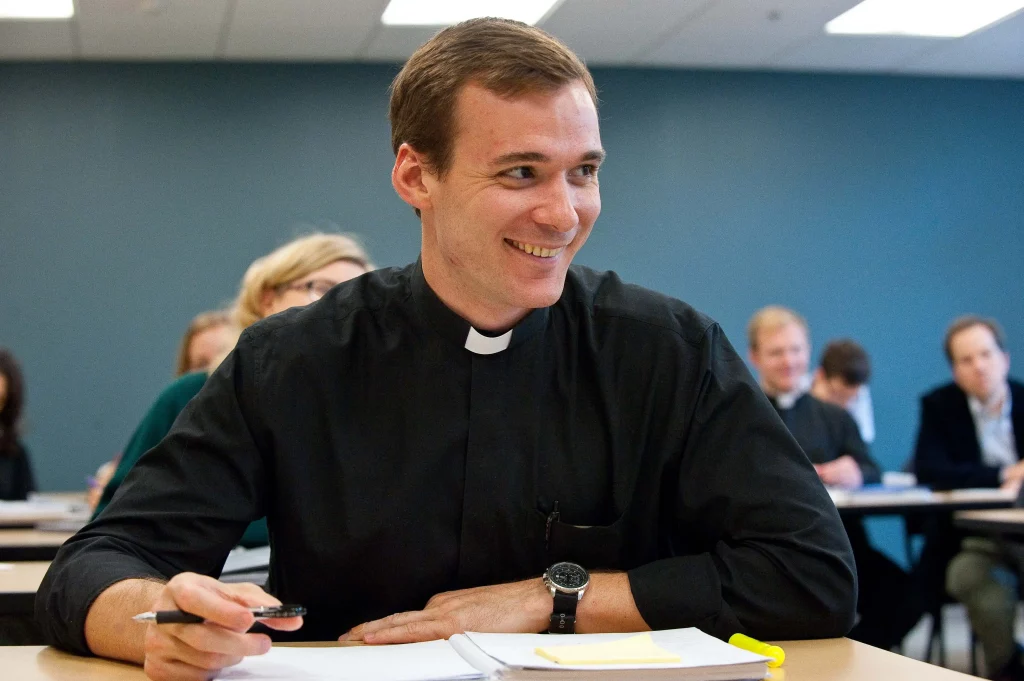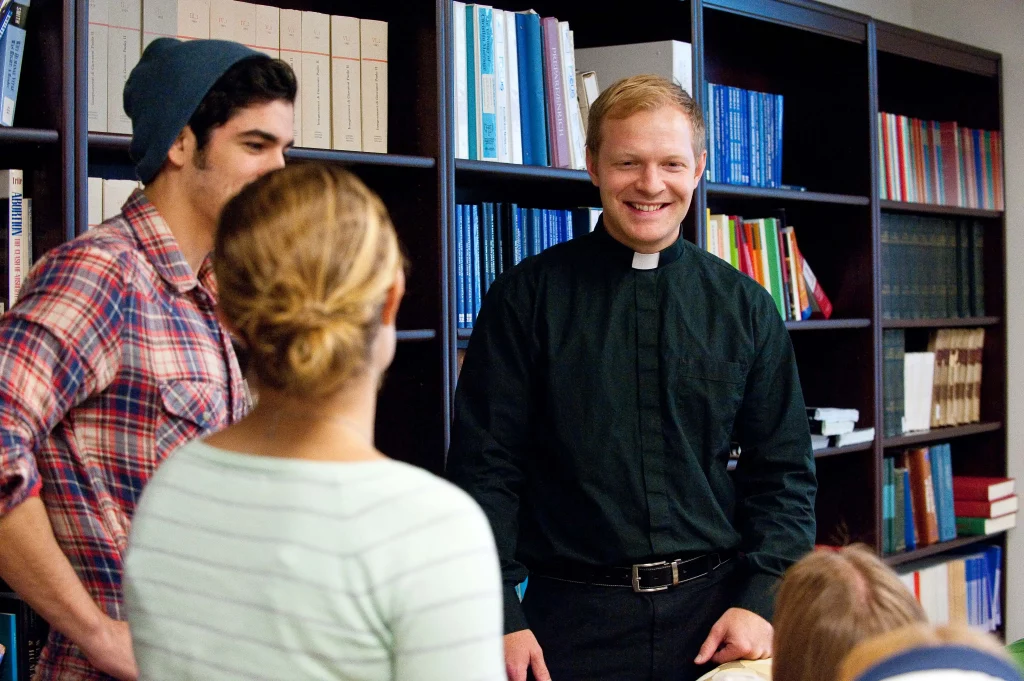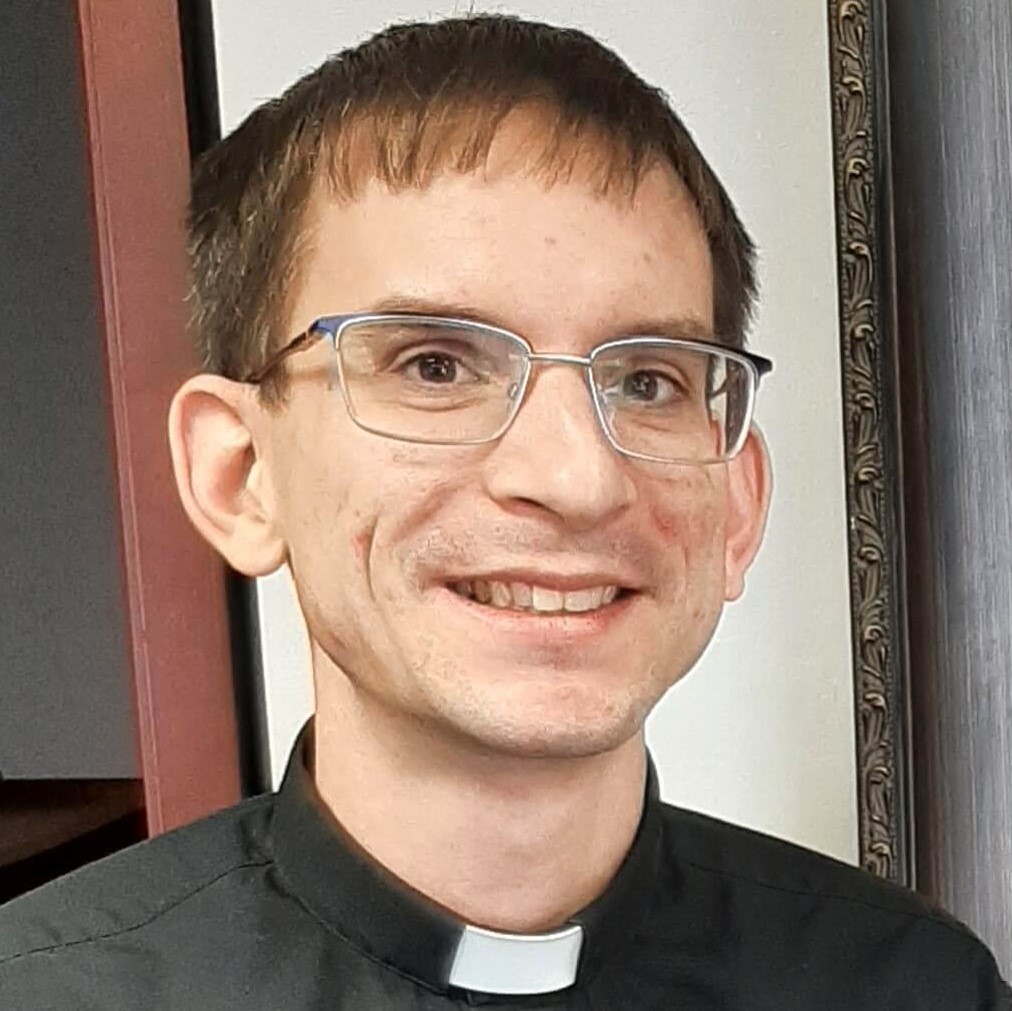General Information
Admission to the S.T.D. program requires the S.T.L. degree (magna cum laude or higher) from a session of the John Paul II Institute. While the S.T.L. degree, magna cum laude or higher, is a prerequisite for consideration for admission into the S.T.D. program, possession of this degree does not guarantee admission.
| Application Form | The application form may be completed online or by PDF. Links to both options are available on the Apply page. |
| Application Fee | The application fee is $75 and is non-refundable. |
| References | At least three letters of recommendation from faculty members of academic institutions formerly attended. Please ask the professors to compare your achievement with that of other students at your level and to evaluate your readiness for graduate studies. These letters must be sent directly to the John Paul II Institute by the recommender through our online portal, by mail, or by email to [email protected]. You will need to complete a waiver for each reference letter. If you are completing the application online, the waiver form is included in the online application form. If not, a copy of the waiver form must accompany the mailed or emailed letter. |
| Essays | 1. In a 1500-word essay, explain your intellectual interests and their relation to the mission of the Institute relative to the current cultural situation. You may wish to refer to the brochure “The Nature and Purpose of the Institute.” 2. Read this excerpt from Josef Pieper’s Leisure as the Basis of Culture. Write a 1500-word essay, commenting on the significance of the philosophical act in Pieper’s sense, in light of the mission of the Institute. Your essays should be formatted in double-spaced, 12-point font, and may be uploaded as part of the online application or emailed to [email protected]. |
| Transcripts and Graduation Documentation | 1. Official transcripts of all post-secondary education (sent by the institution). 2. An official copy of your high school diploma or transcript. |
| GRE Scores | Official Graduate Record Exam (GRE) scores are required for admissions to all degree-seeking programs at the time of application. Our institutional code is 3533, and we are listed as the Pontifical John Paul II Institute. |
| Identification | 1. Electronic photo (headshot). May be uploaded as part of the online application or sent to [email protected]. 2. A copy of your birth certificate and driver’s license/state ID, or a copy of your passport. |
| TOEFL Scores and Admissions Supplement (International Students Only) | 1. Applicants for whom English is a second language must submit TOEFL scores. Our TOEFL code is 8751. 2. Applicants who are not U.S. citizens must submit a completed Admissions Supplement Form. |
| Letter of Permission (Clergy and Religious Only) | A letter of permission to study from your bishop or provincial. |
| Letter of Presentation (Lay applicants only) | A letter from a priest who attests that the applicant is a practicing Catholic in good standing. |
S.T.D. students are required to complete four doctoral seminars. Competency in four languages must be demonstrated by S.T.D. students before the second year of the program, in preparation for the dissertation research. The dissertation must be defended within five years of the student’s entry into the program.

This degree program requires two semesters of full-time study in residence. The completed dissertation must be defended within five years of the date the student enters the S.T.D. program at the Institute. If a student is unable to defend the dissertation within five years, the student may petition the Dean for a one-year extension. If a student fails to defend the dissertation within this period, he or she ceases to be a candidate for the S.T.D. In all cases, total tuition payments for the degree must equal at least the cost of two full-time semesters.
Program Elements
Reading proficiency in scholastic Latin is presupposed at admission and must be demonstrated by successful completion of a written examination. This requirement must be fulfilled during the first semester of residency.
Students are required to demonstrate reading proficiency in biblical Greek by successful completion of a written examination. This requirement must be fulfilled during the first year of residency.
Students must demonstrate reading proficiency in two modern languages from the following list: French, Spanish, Italian, German. Proficiency is ordinarily demonstrated by successful completion of a written examination. This requirement must be fulfilled by the beginning of the third semester of the program. In the case of French or German, successful completion of certain language courses at the Catholic University of America may be substituted for the written exam.

The dissertation should demonstrate maturity of theological judgment based on advanced graduate study. It should give evidence of research skills commensurate with advanced study, ability to perform independent scientific work, and mastery of the candidate’s chosen field of study. The dissertation should be of sufficient quality to constitute a genuine contribution to that field of study and to warrant publication. The dissertation should be 175 to 300 pages in length.
After acceptance of the dissertation by the dissertation director and two readers, the student must defend the dissertation in an oral examination of at least two hours. The student will begin with a fifteen-minute presentation of his or her dissertation. At the end of the defense, both the written dissertation and the oral examination will be graded. A vote will be taken in secret and supervised by the chairman of the examining committee. The final grade is the average of the grades submitted by each board member. If a candidate fails the oral examination, he or she must obtain permission from the Dean to repeat the examination. A candidate will not be permitted to retake the examination until at least one semester, or an equivalent period of time, has elapsed since the date of the failure. If the student fails a second time, he or she ceases to be a candidate for the S.T.D. degree.
